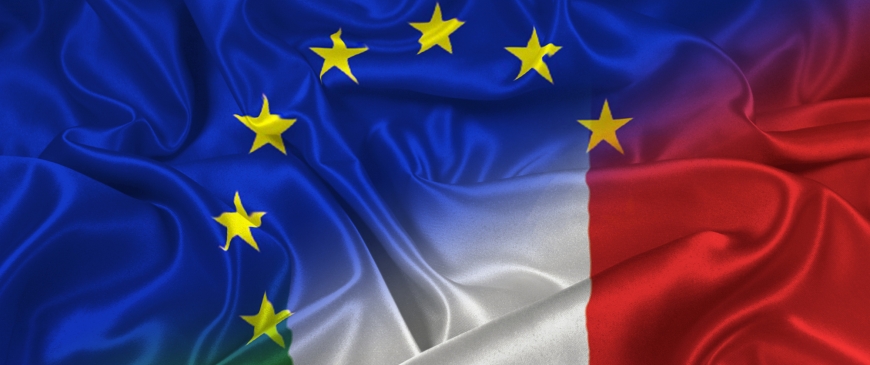
The future of the EU: New perspectives - Italy
The current trajectory of Italian politics is likely to impact considerably on the EU’s future. Ten years ago, Italy was one of the most enthusiastic supporters of European integration. Now it is amongst the most eurosceptic member states. Together with Atlanticism, European integration was a key element of Italy’s post-war foreign policy. Elites saw deeper European integration as a way to promote institutional and economic reform in Italy itself. Opinion polls consistently affirmed the extent to which Italians trusted European institutions more than their own national ones. The past few years have seen a dramatic shift in attitudes. A recent survey by the European Parliament revealed that only 49% of Italians—the lowest proportion in the EU – consider EU membership to have benefited Italy, while only 49% said they would vote to stay in the EU in a referendum.
This reversal in public opinion towards the EU became apparent with the strong performance of the populist Five Star Movement and the nationalist League in the March 2018 general election. These parties joined forces in an uneasy coalition government that clashed with Brussels and other member states over a range of issues, from public finances to migration and foreign policy. The relationship was further undermined by the fact that the government in Rome was not seen as a serious partner by other member states, which hindered much needed reforms to the eurozone.
Italy’s eurosceptic drift is due, above all, to the eurozone crisis. Many Italians think the euro and the eurozone’s rules have been a major reason for Italy’s economic stagnation over the past decade – forcing Rome to cut spending when the economy needed fiscal stimulus. Many Italians began to see the EU not as a modernising and positive force but as an enforcer of damaging austerity policies. The consequences of the eurozone crisis were compounded by a perceived lack of European solidarity in dealing with migration. Italy took in 650,000 migrants between 2014 and 2018. Efforts by the EU to share the financial burden more broadly were largely symbolic, with a mechanism to share asylum seekers between member states failing to make a significant impact.
In combination, these crises proved a powerful political cocktail, and one that was ruthlessly exploited by the Five Star Movement and particularly by the League. Within the context of a pre-existing erosion of trust in the established parties, the eurozone and migration crises made it easier for shrewd eurosceptic politicians, such as League leader Matteo Salvini, to make their case. The rise of eurosceptic sentiment was facilitated by the growing perception that the EU was dominated by France and Germany to serve their needs, leaving Italy without a voice. Visible examples of these countries flaunting the rules – such as breaking the eurozone’s deficit limits – fuelled the perception that they were doing the same in other areas behind the scenes.
The decision by the Five Star Movement and the centre-left Democratic Party to form an alliance after the collapse of the League-Five Star coalition in the summer of 2019 means that Italy and the EU have, for now, avoided the risk of a vocal eurosceptic League-led government. Under the new government, relations between Rome and Brussels have become less fraught. But the alliance between the Five Star Movement and the Democratic Party has been uneasy, and popular support for the Five Star Movement has collapsed as a result of the party’s transition from a protest movement into a party of government. The governing coalition may hold together until the 2023 election out of sheer necessity but it will continue to lose support if the economy continues to perform badly, or if there is an increase in the number of migrants arriving in Italy. Salvini will be quick to capitalise on any perceived EU unwillingness to help Italy in the face of the economic fallout from the coronavirus, or renewed migration pressure.
At some point in the next few years, it is very possible that Italy will have a League-led government, probably in coalition with the nationalist Brothers of Italy. A League government would increase the risk of Italy leaving the euro, although withdrawal would remain unlikely, not least as the threat of exit would be preceded by great economic turbulence. Although a League government would be unlikely to contribute to efforts to make the EU a more ‘geopolitical’ actor, its foreign policy is unlikely to drastically change. For example, the League is unlikely to veto EU sanctions on Russia as long as the US remains in favour of them.
The biggest threat to the EU of a League government would probably be the manner in which it would try to reassert national sovereignty, for example refusing to implement EU rules or demanding a rebate from the EU budget. In every policy area, the League would want to extract tangible benefits for Italy, making cooperation increasingly difficult and the relationship more transactional. This would make it even harder for member states to reform the eurozone and tackle the challenges facing the EU, from stabilising its neighbourhood to fighting climate change, regulating new technology, and formulating a coherent policy towards China.
If the EU is unable to provide effective solutions to common challenges, more member states risk following Italy’s path, prompting further erosion in European solidarity and making governance of the Union ever more challenging. Member states might increasingly be feel impelled to cooperate outside the EU framework to address joint challenges. While such a scenario may not seem likely for now, it will become more likely if the EU does not manage to defuse eurosceptic sentiment in Italy and elsewhere.
Luigi Scazzieri is a research fellow at the Centre for European Reform.
This article is from The future of the EU: New perspectives, read full publication here.
